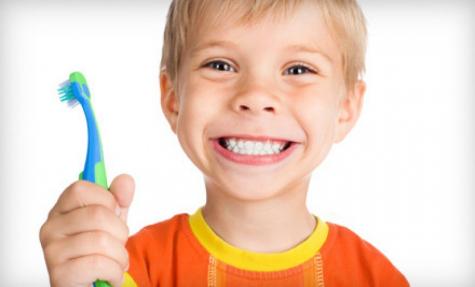It is not unusual for a child to wake up with bad breath (known also as halitosis). Throughout the day, saliva washes away unwanted food debris. As soon as a child falls asleep, saliva production decreases. Therefore, the longer a child sleeps, the more bacteria are produced in the mouth, causing bad breath.
However, there are some cases in which bad breath can be a symptom of something more serious.
Causes of bad breath
There are several reasons why a child might have bad breath:
- Poor dental hygiene – the most most common cause.
- Mouth-breathing – breathing through the mouth rather than the nose dries out the mouth and allows bacteria to grow. Children who consistently breathe through their mouths might have a cold, sinus infection, allergies, or enlarged tonsils or adenoids blocking the nasal passages.
- Sucking - if a child sucks on fingers or a pacifier, the object may develop an odour from saliva and bacteria. A pacifier may also have food residue on it.
- Tonsil stones - collections of food and bacteria that get stuck in the crevices of the tonsils.
- Cavities or tartar build-up.
- Sinus infection - other symptoms include a cough, fever, face swelling, or a thick yellow-green nasal discharge.
- Pharyngitis (throat infection) - child would have a sore throat along with bad breath.
- Seasonal allergies – can cause postnasal drip. Other symptoms include a dry cough that gets worse at night, itchy eyes, and a runny nose.
- A foreign object shoved up a child’s nose - if the object is left there, it can rot and cause an infection. The odour will come from the nose and not the mouth.
- Eating some foods!
Preventing and treating bad breath
Parents should consider the following tips in order to prevent and treat bad breath in young children:
- Teeth should be brushed two, but preferably three, times a day after meals using a soft-bristled toothbrush.
- Dental floss should be used everyday to reduce mouth odour. Young children will need help from parents.
- Children should eat a good breakfast to stimulate the flow of saliva and reduce oral bacteria. Foods high in fibre are highly recommended.
- Have child rinse frequently with water and drink plenty of fluids to help reduce dry mouth.
- Child should consume frequent drinks and snacks throughout the day to provide opportunities for bacteria to be moved around the mouth and flushed away.
- Treat cold and allergy symptoms promptly to reduce post-nasal drip and prevent mouth breathing.
- Make sure your child’s hands are washed frequently with soap and water if fingers or thumb are sucked.
- Sterilise pacifiers or other sucking objects frequently by boiling or running them through the dishwasher.
- Take your child for regular dental check-ups to make sure that teeth are healthy and clean.
When to see a doctor or dentist
Parents should contact a doctor or dentist if any of the following symptoms appear:
- If bad breath does not go away within five days after careful dental hygiene.
- If bad breath is accompanied by a cough that lasts more than 10 days.
- If bad breath is accompanied by a fever.
- If there is heavy, green nasal discharge from one nostril—this could be a sign of infection from a foreign object lodged in the nose.
- If there is bleeding around the gums, visible tooth decay, or a discoloured tooth.















__small.png)










